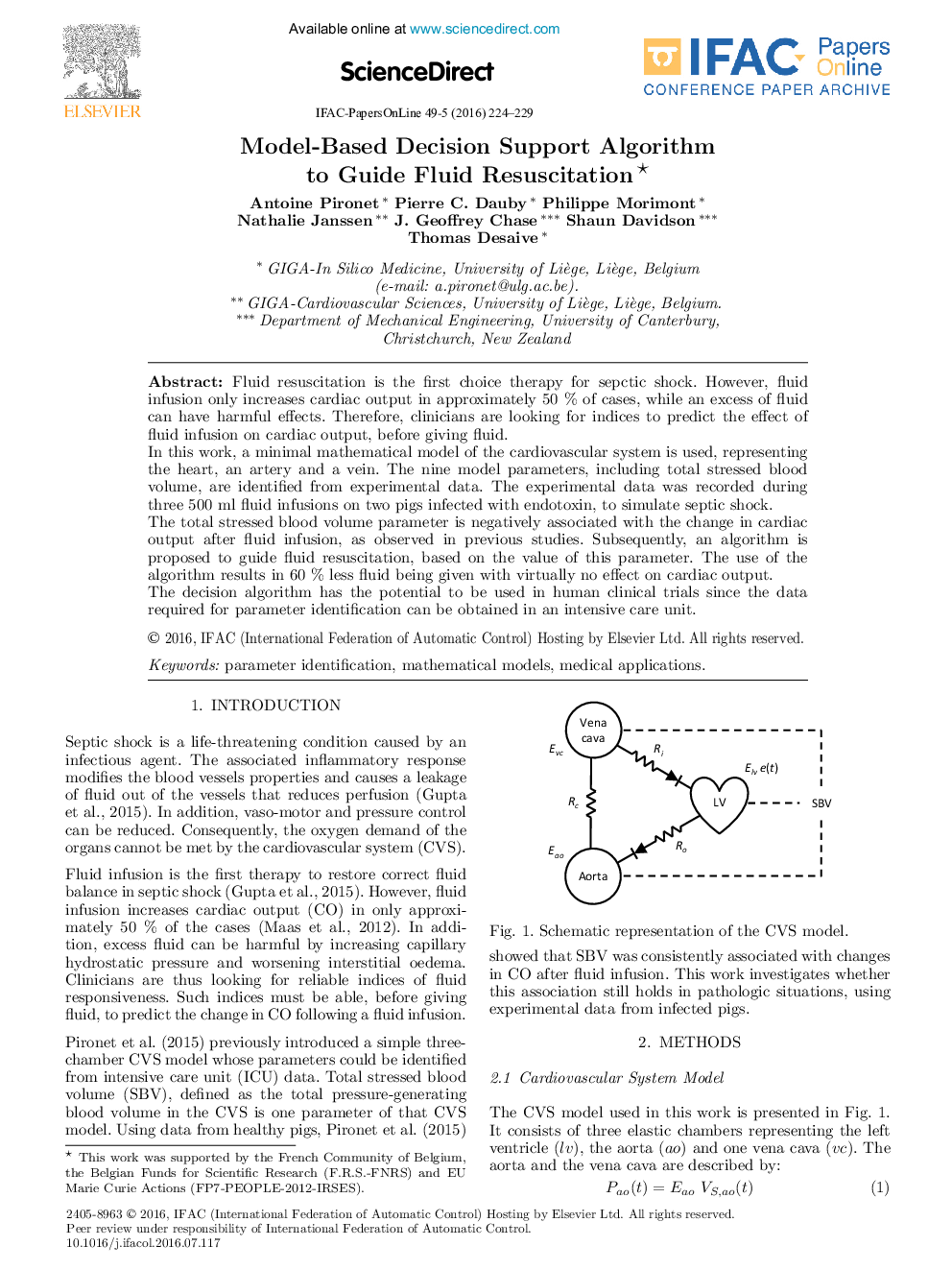| Article ID | Journal | Published Year | Pages | File Type |
|---|---|---|---|---|
| 710460 | IFAC-PapersOnLine | 2016 | 6 Pages |
Fluid resuscitation is the first choice therapy for sepctic shock. However, fluid infusion only increases cardiac output in approximately 50 % of cases, while an excess of fluid can have harmful effects. Therefore, clinicians are looking for indices to predict the effect of fluid infusion on cardiac output, before giving fluid.In this work, a minimal mathematical model of the cardiovascular system is used, representing the heart, an artery and a vein. The nine model parameters, including total stressed blood volume, are identified from experimental data. The experimental data was recorded during three 500 ml fluid infusions on two pigs infected with endotoxin, to simulate septic shock.The total stressed blood volume parameter is negatively associated with the change in cardiac output after fluid infusion, as observed in previous studies. Subsequently, an algorithm is proposed to guide fluid resuscitation, based on the value of this parameter. The use of the algorithm results in 60 % less fluid being given with virtually no effect on cardiac output.The decision algorithm has the potential to be used in human clinical trials since the data required for parameter identification can be obtained in an intensive care unit.
